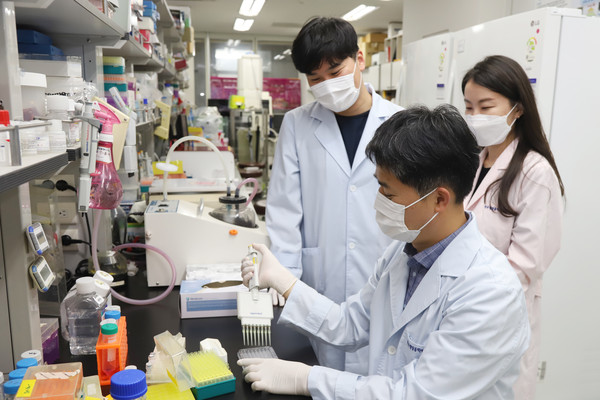A domestic research team has developed the world's first directly reprogrammed natural killer (drNK) cell production technology to provide a next-generation immune cell therapy, offering an alternative cancer treatment.

The drNK has been recognized as the latest stem cell and regenerative medical technology for providing new treatments by producing human cells for therapeutic purposes that are difficult to obtain naturally with reprogramming somatic cells. The technology directly transforms natural killer cells and cancer-specific chimeric antigen receptor natural killer cells from somatic cells that could be easily obtained.
The technology, developed by the Korea Research Institute of Bioscience and Biotechnology (KRIBB), is likely to be widely used in producing autologous and allogeneic natural killer cells.
Researchers believe drNK produced through their technology demonstrates significant effects on various cancer cells, including blood and solid cancer, and become a next-generation anticancer immune cell therapy.
The research team valued the study result as significant as it sourced a new NK cell therapy that has attracted interest as a novel alternative to the existing anticancer drugs. Researchers also expect it to lead to technological innovation and contribute to developing new technologies for anticancer drugs and infectious diseases in the future.
"The recent outcomes suggested a new alternative to the development of a safe and effective NK immune cell therapy using direct reprogramming technology, and can contribute to the development of treatments for various intractable diseases using NK cells in the future," said Doctor Cho Yee-sook of the Immunotherapy Research Center at KRIBB, who led the study.
The study results were published in the online edition of Nature Biomedical Engineering on Aug. 3.

